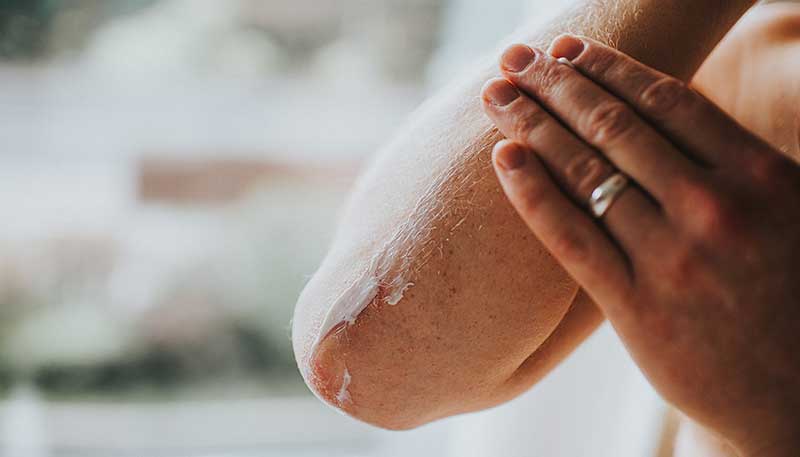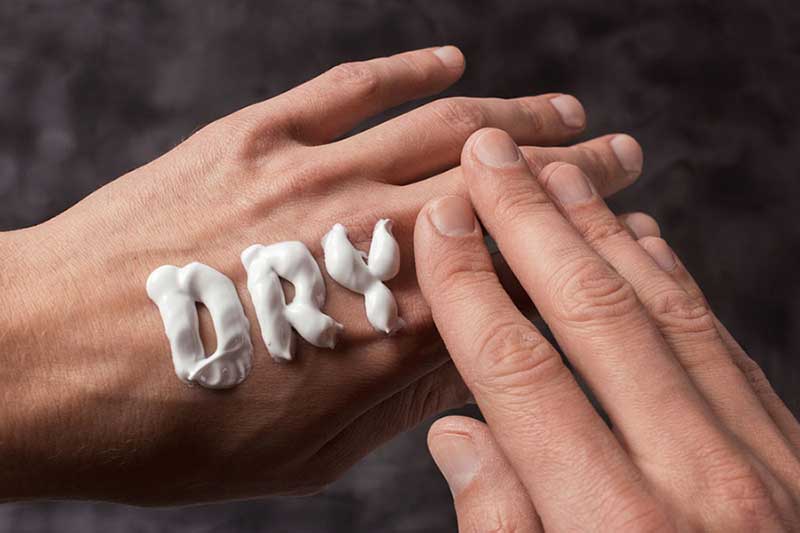Dry skin can be a bothersome condition that affects people of all ages. It can cause discomfort, itchiness, and flakiness, and in severe cases, it may even lead to cracks and bleeding. To effectively manage and treat dry skin, it’s important to understand the underlying causes. In this article, ozinsight will explore the various factors that contribute to dry skin and provide practical tips for alleviating the symptoms.
Introduction
Dry skin, medically known as xerosis, occurs when the skin fails to retain sufficient moisture. It can affect any part of the body, but it is commonly found on the arms, legs, hands, and face. Dry skin is often a result of a combination of factors, including environmental influences, lifestyle choices, and underlying medical conditions.
What is Dry Skin?
Before delving into the causes, let’s first understand what dry skin actually is. The outermost layer of our skin, called the stratum corneum, acts as a barrier to protect the underlying layers. This layer is responsible for retaining moisture and maintaining skin hydration. However, when the stratum corneum becomes compromised or damaged, it fails to function properly, leading to dryness.

Common Causes of Dry Skin
Environmental Factors
Environmental factors play a significant role in causing dry skin. Cold weather with low humidity levels can strip the skin of its natural oils, resulting in dryness. Similarly, exposure to dry air from indoor heating systems or air conditioning can also contribute to the problem.
Aging
As we age, our skin produces less natural oil, making it more prone to dryness. The production of sebum, the skin’s natural lubricant, decreases with age, leading to a loss of moisture and elasticity.
Harsh Soaps and Cleansers
Using harsh soaps, cleansers, or detergents can strip the skin of its natural oils and disrupt the skin barrier, causing dryness. Opting for mild, fragrance-free cleansers can help maintain the skin’s moisture balance.
Hot Showers or Baths
While hot showers or baths may be relaxing, they can actually worsen dry skin. Prolonged exposure to hot water can strip away the skin’s natural oils, leading to dryness and irritation. It’s advisable to use lukewarm water and limit bathing time.
Medical Conditions
Certain medical conditions can contribute to dry skin. Eczema, psoriasis, and hypothyroidism are examples of conditions that can cause or exacerbate dryness. In these cases, it is important to address the underlying condition in order to manage dry skin effectively.
Dehydration
Inadequate water intake can result in dehydration, which affects the overall moisture levels in the body, including the skin. It is essential to drink an adequate amount of water throughout the day to keep the skin hydrated from within.

Tips for Managing Dry Skin
While dry skin can be challenging to deal with, there are several measures you can take to alleviate the symptoms and improve the overall condition of your skin.
Use Gentle Cleansers
Opt for mild, fragrance-free cleansers that are specifically formulated for dry or sensitive skin. Harsh cleansers can strip away natural oils and further dry out the skin.
Moisturize Regularly
Moisturizing is crucial for maintaining hydrated skin. Choose a moisturizer that suits your skin type and apply it immediately after bathing or washing your face to lock in moisture.
Protect Your Skin from the Elements
When venturing outside, especially in harsh weather conditions, protect your skin by wearing appropriate clothing, such as hats, scarves, and gloves. This helps shield your skin from cold winds and low humidity levels.
Stay Hydrated
Ensure you stay well-hydrated by drinking an adequate amount of water throughout the day. This helps replenish moisture levels in your body and indirectly benefits your skin.
Avoid Hot Water
Limit your exposure to hot water, whether it’s during bathing or washing your hands. Hot water can strip away the skin’s natural oils and aggravate dryness.
Use Humidifiers
If you live in a dry climate or spend a significant amount of time in heated or air-conditioned environments, consider using a humidifier. Humidifiers add moisture to the air, helping to prevent dryness.
Wear Proper Clothing
Choose clothing made from natural, breathable fabrics like cotton or silk, which are less likely to irritate the skin. Avoid rough or scratchy materials that can cause friction and worsen dryness.
Conclusion
Understanding the causes of dry skin is essential for effectively managing and preventing its occurrence. By addressing the underlying factors, such as environmental influences, aging, harsh cleansers, and dehydration, you can take steps to keep your skin healthy and hydrated. Remember to use gentle cleansers, moisturize regularly, protect your skin from the elements, and stay hydrated. If your dry skin persists or worsens despite these measures, it’s advisable to consult a dermatologist for further evaluation and treatment.
FAQs
Can dry skin be a sign of a medical condition?
Yes, dry skin can sometimes be a symptom of an underlying medical condition such as eczema, psoriasis, or hypothyroidism. If you are concerned about your dry skin, it’s best to consult a healthcare professional for an accurate diagnosis.
How often should I moisturize my skin?
It is recommended to moisturize your skin at least twice a day—once in the morning and once at night. However, if you have extremely dry skin, you may need to moisturize more frequently, especially after bathing or washing your face.
Can drinking more water help with dry skin?
While drinking water is important for overall health, it doesn’t directly hydrate the skin. However, staying adequately hydrated can support the body’s moisture balance and contribute to healthier-looking skin.
Are there any natural remedies for dry skin?
Some natural remedies for dry skin include applying coconut oil, olive oil, or shea butter to the skin, taking oatmeal baths, and using aloe vera gel. However, it’s important to note that results may vary, and it’s best to consult with a dermatologist for personalized recommendations.
When should I see a doctor about my dry skin?
If your dry skin is persistent, severe, or accompanied by other concerning symptoms, such as excessive itching, redness, or pain, it is advisable to seek medical attention. A dermatologist can evaluate your skin condition and provide appropriate treatment options.














Got a Questions?
Find us on Socials or Contact us and we’ll get back to you as soon as possible.